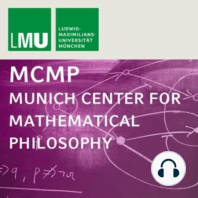92 min listen

Three ways in which logic might be normative
Three ways in which logic might be normative
ratings:
Length:
64 minutes
Released:
Dec 18, 2014
Format:
Podcast episode
Description
Florian Steinberger (MCMP/LMU) gives a talk at the Workshop on Mathematics: Objectivity by Representation (11 November, 2014) titled "Three ways in which logic might be normative". Abstract: Logic, the tradition has it, is, in some sense, normative for reasoning. Famously, the tradition was challenged by Gilbert Harman who argued that there is no interesting general normative link between facts about logical consequence and norms of belief formation and revision. A number of authors (e.g. John MacFarlane and Hartry Field) have sought to rehabilitate the traditional view of the normative status of logic against Harman. In this paper, I argue that the debate as a whole is marred by a failure of the disputing parties to distinguish three different types of normative assessment, and hence three distinct ways in which logic might be said to be normative. I show that as a result of their failure to appreciate this three-fold distinction, authors have been talking past one another. Finally, time-permitting, I show how each of the three types of normative assessments relate to broader epistemological commitments, specifically commitments within the internalism/externalism debate.
Released:
Dec 18, 2014
Format:
Podcast episode
Titles in the series (22)
Remarks on the foundations of mathematics: Colloquium Mathematical Philosophy by MCMP – Philosophy of Mathematics